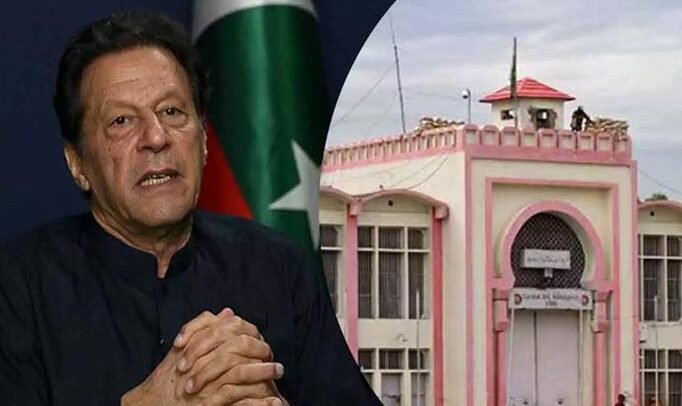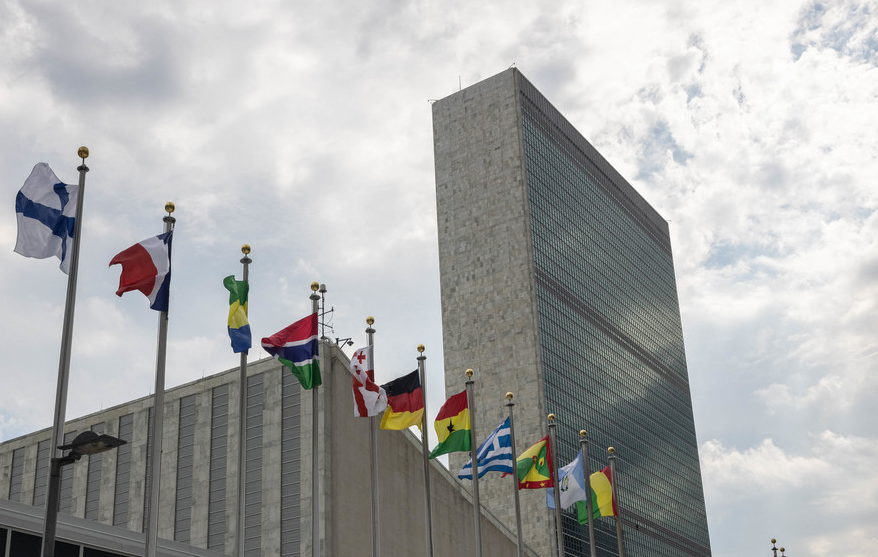ISLAMABAD: Federal Minister for Planning and Development Ahsan Iqbal, while talking to journalists at a Presser held here on Sunday (22nd Sept, 2024), pointed towards a piece ran recently by an Israeli publication The Jerusalem Post, has revealed that the populace of Pakistan had commenced to figure out who was behind the PTI’s agenda!
Still quoting the piece, Federal Minister for Planning and Development claimed that the article had unearthed the secret lurking underneath the mist of ignorance i.e: “Zionist lobby is attempting to re-establish Imran Khan as the country’s PM”! Pointing to the content of the write-up he disclosed that it suggested that Imran Khan was reckoned as the only acceptable politician for the Israeli lobby in Pakistan.

Incarcerated former premier Imran Khan, accusing Ahsan Iqbal and other political opponents of misinterpreting The Jerusalem Post piece, denied allegations: “Since yesterday, there has been a propaganda blitz, citing an Israeli newspaper that I am the biggest advocate for relations with Israel…These claims are absurd. The article did mention me, but clearly, some people do not understand English…My stance on Israel has not changed. The Palestinian people are enduring genocide. Any discussions with Israel are contingent upon a ceasefire and a genuine commitment to a two-state solution.”

On this, the anniversary of the Abraham Accords, one of the questions often discussed in geopolitical circles is just how far the normalization of relations between Israel and the Muslim world can realistically go.
The Accords marked a historic step in Middle Eastern diplomacy that shouldn’t be understated: They saw the normalization of relations between Israel and several key Arab states, among which were the UAE, Bahrain, Morocco and Sudan – yet it should not be forgotten that Sudan is Israel’s former sworn enemy.
Indeed, Khartoum was where the eponymous Khartoum Resolution was issued on September 1, 1967, defining Arab foreign policy towards Israel for generations, according to which there would be, “No peace with Israel, No negotiation with Israel, and No recognition of Israel” by any Arab League member state – which became known as “The Three No’s.”
To understand what the potential is for furthering such trends of normalization, it is necessary to look at where Israel has been historically in order to understand where it is going. With the ongoing war in Gaza and an escalation on Israel’s norther border, what would it take for future agreements to materialize?
Pragmatism, along with a finely tuned sense of survival, marked the early years of Israel’s diplomatic outreach. Not only did it actively seek relationships beyond the hostile Arab bloc in the 1950s and 1960s but two rather significant partnerships were created with India and Ethiopia.
Both countries, while not being Muslim-majority states, were significant players in their regions, and both had strategic reasons to build bonds with Israel.
India, Pakistan, and others
India, for its part, was a newly independent state, just like Israel, and had to find its way around a hostile neighborhood. Even if formal diplomatic relations only emerged in 1992, informal cooperation between both nations began much earlier. Israel is perceived in India as a potential ally in its endeavor to balance out its adversaries.
India has also recognized Israel’s technological capability, notably in agriculture and defense. The relationship was pragmatic from the first instance, resulting from mutual gain rather than ideology, which has been a theme to guide Israel’s foreign policy in the years to come.
Israel also found a powerful friend in Ethiopia under emperor Haile Selassie. Both states shared concerns about the security situation in their respective regions and regarded potential threats from unfriendly states with much concern.
Israel would see in Ethiopia a valuable ally because of its strategic geographical position – almost a bridge between Africa and the Middle East – and its desire to forge relations with Israel, mainly away from the Arab parts of Africa.
What these two cases interestingly demonstrate is how early Israeli foreign policy efforts were driven by a need to find alliances where the basis for cooperation would be common interest and not necessarily religion or culture.
Jerusalem’s history of pragmatic diplomacy can help indicate where the next stages of normalization might lie. With the Abraham Accords having removed many of the barriers that stand between Israel and key Arab states, attention again turns to those non-Arab Muslim-majority countries yet to normalize relations with Israel – with an eye toward Indonesia and Pakistan.
Pakistan is an interesting case in point. Although it has maintained a policy position that was pro-Palestinian for a long time, recent years have seen an occasional sign of its desire to improve relations with Israel.
Former prime minister Imran Khan – despite his strong rhetoric against Israeli policies – hinted at Pakistan needing to forge its own foreign policy path. This was particularly pertinent at a time when the rest of the Muslim world began to normalize ties with Israel on the basis of self-interest.
Khan’s Pakistan Tehreek-e-Insaf Party winning 93 National Assembly seats in the country’s recent election his influence – or perhaps the emergence of another like-minded and equally pragmatic leader – could bring opportunities for reevaluating the extent to which Pakistan can afford to reconsider its historic hostility toward Israel, particularly in the face of its ongoing deep economic crises.
For Pakistan, normalization with Israel would bring about significant economic benefits, including technological support in agriculture, cybersecurity, and defense, not to mention potential financial investment, among other things. In 2022 alone, trade between Israel and the UAE jumped 124% to $2.59 billion year-on-year exhibiting the potential.
A more diversified foreign policy on Pakistan’s part could also bring with it strategic benefits as it navigates its own complex relationships with both India and Afghanistan. But for that, a strong resistance from within its own military establishment, which has long held back full-blown normalization with Israel, would need to change.
A change in leadership would most probably also be needed for any resolution to move forward, and figures like Khan could very well be central in changing both public opinion and military policy alongside of course, the continuous evolution of regional dynamics.
The return of Donald Trump to the White House in November might very well hasten the process. The Trump administration had previously been committed to expanding the Abraham Accords to as many countries as possible, with the help of both military and financial incentives from his administration.
A United States government led by Trump may therefore see states like Pakistan and even Indonesia, the world’s most populous Muslim nation, encouraged with the help of diplomatic benefits or economic inducements.
However, even without a second Trump administration and despite the war in Gaza, momentum in this area is building. The Abraham Accords demonstrated that ideological differences, rooted in disputes that are decades old, can be crossed if and when mutual interest arise – and they can be crossed in a surprisingly short amount of time after conflicts.
Diplomacy is the art of possibility and history has often surprised us with what has been possible. The potential to redraw the geopolitical map of the 21st century is greater today than at any previous point in time.
With the right vision and leadership, the next phase of normalization between Israel and the Muslim world may be even closer than we think.
__________
The writer is a foreign policy analyst and served as a senior aide and economic adviser to a member of the UK Parliament. He has extensive experience in these roles having advised other members of the UK Parliament on a range of issues and led numerous national campaigns.
Newspakistan.tv












